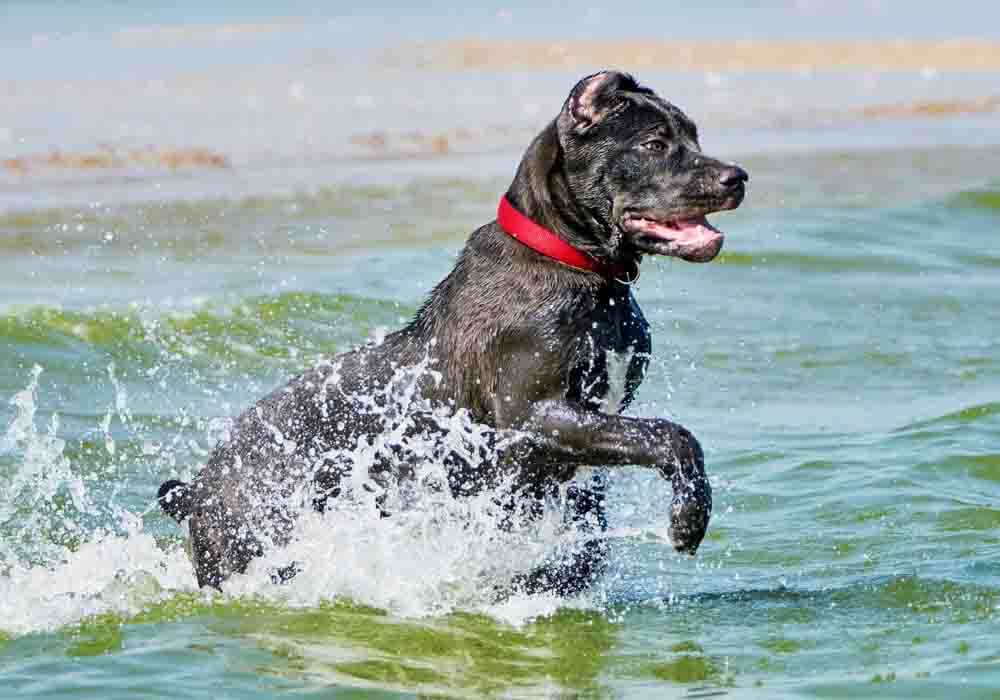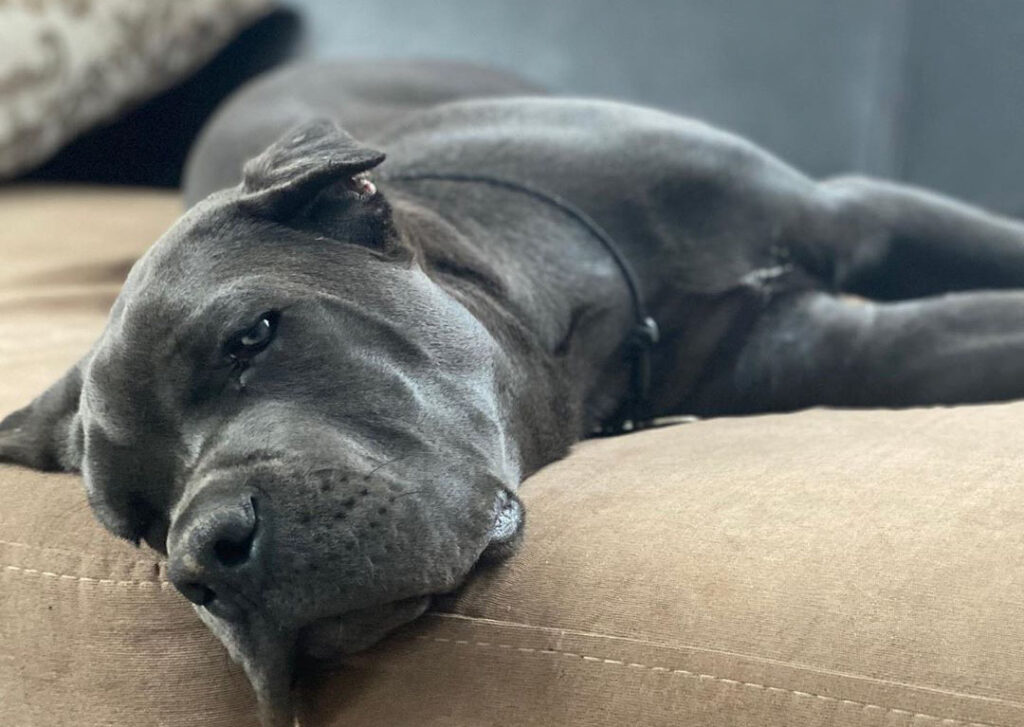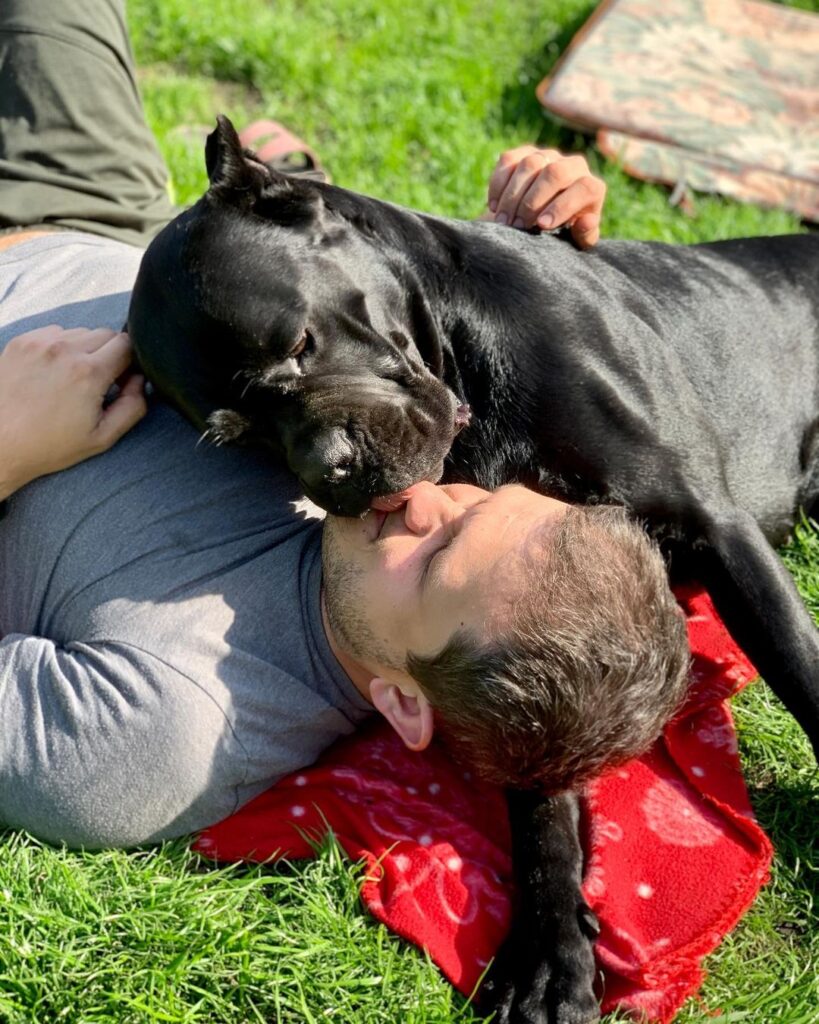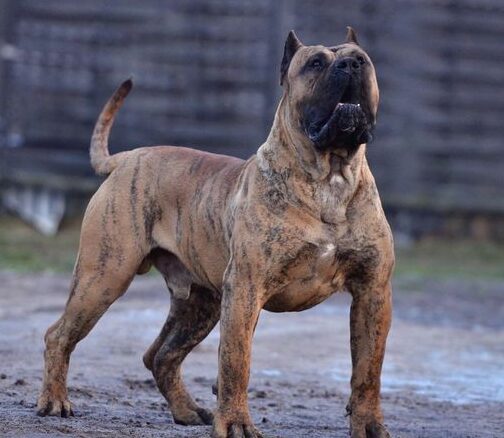
Cane Corsos are a magnificent breed known for their loyalty and protective nature. However, like any breed, they can display aggression under certain circumstances. It’s essential to understand the factors that might contribute to aggression in Cane Corsos and how to prevent and manage it. “Are Cane Corso Aggressive?”
What Makes Cane Corso More Aggressive?
It encompasses genetic predispositions that might lead to dominance, their natural guarding instincts that could be misconstrued as aggression, and the role of socialization and training in shaping their temperament.
Genetics and Temperament
Inherited Traits
Cane Corsos, like all breeds, inherit a set of traits from their ancestors. Some individuals may have a genetic predisposition towards assertive behavior. This doesn’t necessarily mean they are bound to be aggressive, but rather that they might display dominant tendencies more readily. It’s crucial to understand that genetics alone don’t determine a dog’s behavior. Responsible breeding practices and early socialization play a vital role in shaping a Cane Corso’s personality. While inherited traits might influence behavior, they can be mitigated through proper training and positive experiences.
Guarding Instincts
Guarding instincts are deeply ingrained in the DNA of Cane Corsos. Historically used as guardian and protection dogs, these instincts served an essential purpose. However, in modern households, these instincts might be misinterpreted as aggression. When a Cane Corso exhibits guarding behavior, such as being protective of its family or territory, it’s essential to differentiate between true aggression and its natural instincts. Proper training can channel these instincts positively, teaching the dog when to be protective and when to remain calm. Understanding their innate desire to guard is crucial in managing their behavior and fostering a healthy bond.
Socialization and Training
Lack of Socialization
A lack of proper socialization during a Cane Corso’s critical developmental stages can lead to fear-based aggression. When a dog hasn’t been exposed to various people, animals, environments, and stimuli during its early months, it may become overly anxious or reactive in unfamiliar situations. Fear can manifest as aggression as a defense mechanism. Socialization is like a foundation that helps dogs build confidence and learn to navigate the world without feeling threatened. Introducing your Cane Corso to different experiences gradually and positively can significantly reduce the likelihood of fear-based aggression later in life.
Inadequate Training
Inadequate training can inadvertently contribute to aggression in Cane Corsos. These intelligent and strong-willed dogs require consistent and structured training to understand their role in the household hierarchy. When training lacks boundaries and leadership, the dog might assume a dominant role, which can escalate into aggressive behaviors. It’s important to establish yourself as the pack leader through positive reinforcement-based training methods. Setting clear rules and commands while rewarding desired behaviors helps the dog understand its place and reduces the likelihood of confusion and aggressive tendencies. Training not only teaches commands but also builds trust and respect between you and your Cane Corso, fostering a harmonious relationship.
Are Cane Corso Aggressive to Other Dogs?
Cane Corsos can have varying attitudes towards other dogs based on factors like their socialization, training, and individual personalities.
Intra-breed Aggression
Same-Sex Aggression
Same-sex aggression in Cane Corsos refers to the tendency for unneutered males of the same breed to display aggressive behavior towards one another. This behavior is often rooted in their natural inclination to establish dominance and compete for resources or territory. When two unneutered males encounter each other, particularly in situations where they feel the need to assert their dominance, conflicts can arise. However, it’s important to note that not all Cane Corsos will exhibit same-sex aggression, and individual personalities and socialization play a significant role.
Territorial Behavior
Territorial behavior is deeply ingrained in the DNA of Cane Corsos due to their history as guard dogs. This breed is naturally protective of its home and family, which can sometimes be mistaken for aggression. When a Cane Corso perceives its territory to be under threat, it might display aggressive posturing to deter potential intruders. Understanding this behavior is key to managing it effectively. Proper training and early socialization can help a Cane Corso differentiate between real threats and normal interactions. Providing clear guidance and boundaries can channel their territorial instincts in a positive and controlled manner.
Socialization Benefits
Early Exposure
Early exposure is a vital aspect of raising a well-adjusted Cane Corso. Introducing them to various environments, people, animals, and experiences during their formative months builds their confidence and minimizes the likelihood of fear-based aggression. Positive interactions during this critical period lay the foundation for their social skills and responses to different situations. Whether it’s meeting new dogs, encountering strangers, or navigating different environments, exposing Cane Corsos to positive experiences sets the stage for a well-rounded and less reactive adult dog.
Ongoing Interaction
Ongoing interaction with well-behaved dogs plays a significant role in shaping a Cane Corso’s behavior. Regular positive encounters with other dogs, especially those with good manners and social skills, can serve as positive examples for your own dog to follow. These interactions reinforce positive behavior and help Cane Corsos learn appropriate social cues. Playdates, group training classes, and controlled meet-ups with friendly dogs contribute to their ongoing development and reduce the chances of aggressive behavior arising from misunderstanding or miscommunication during interactions.
How to Prevent Aggression in Cane Corso?
Preventing aggression requires a combination of early training, socialization, and responsible ownership.
Positive Reinforcement
Reward-Based Training
Reward-based training is a powerful tool when it comes to shaping a Cane Corso’s behavior. This positive approach involves using rewards like treats, praise, or playtime to reinforce desired actions. When a Cane Corso associates good behavior with positive outcomes, they’re more likely to repeat those behaviors. This method is not only effective in discouraging aggressive tendencies but also strengthens the bond between you and your dog. By focusing on what they do right and celebrating their successes, you’re guiding them toward becoming a well-mannered and non-aggressive companion.
Consistency
Consistency is the cornerstone of successful Cane Corso training. Dogs thrive on predictability, and when rules and expectations remain the same, they’re better able to understand their role in the household. Inconsistent rules or responses can confuse a Cane Corso, potentially leading to frustration and behavioral problems, including aggression. Consistency applies to commands, boundaries, and rewards. When everyone in the household follows the same training guidelines, the dog receives clear messages about acceptable behaviors. By maintaining a consistent and united approach, you’re creating an environment that minimizes stressors that could trigger aggressive reactions.
Early Socialization
Controlled Exposures
Controlled exposures are essential for helping your Cane Corso develop a confident and non-aggressive demeanor. Gradually introducing them to different stimuli, people, animals, and environments in a controlled manner prevents overwhelming situations that might trigger fear-based aggression. Controlled exposures allow you to manage their reactions and guide them toward positive associations. Whether it’s introducing them to new dogs on-leash or gradually acclimating them to unfamiliar environments, these experiences build their resilience and teach them how to navigate novel situations without feeling threatened. This approach lays a foundation for a well-rounded and sociable Cane Corso.
Puppy Classes
Enrolling your Cane Corso puppy in puppy classes offers a fantastic opportunity for socialization and learning. These classes are specifically designed to expose puppies to various dogs, people, and environments in a structured and positive setting. Experienced trainers guide both you and your puppy through appropriate interactions and basic training exercises. Puppy classes not only teach obedience but also help prevent future aggression by instilling good manners and social skills. The controlled environment of a class allows for safe interactions, helping your Cane Corso build positive associations with other dogs and people. These early interactions set the tone for a lifetime of healthy social behavior.
What to Do If You Have an Aggressive Cane Corso?
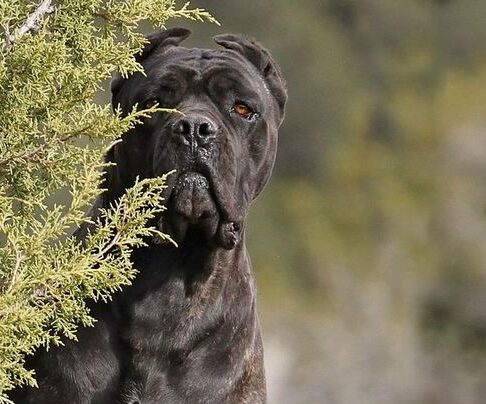
Dealing with an aggressive Cane Corso requires patience, professional guidance, and responsible measures.
Consult a Professional
Canine Behaviorist
When dealing with an aggressive Cane Corso, seeking the expertise of a canine behaviorist can be invaluable. These professionals specialize in understanding dog behavior and can assess the underlying causes of aggression. A behaviorist works closely with you and your dog to develop a tailored behavior modification plan. This plan might involve addressing triggers, implementing training techniques, and providing guidance on managing and preventing aggressive incidents. The insight and guidance of a canine behaviorist empower you to address the root causes of aggression and work towards a safer and more harmonious relationship with your Cane Corso.
Training Classes
Training classes are a valuable resource for managing aggression in Cane Corsos. Enrolling your dog in advanced training classes led by experienced trainers allows you to learn effective techniques for managing aggressive behaviors. These classes provide a controlled environment where dogs can interact under supervision, helping your Cane Corso learn appropriate social cues and responses. Trainers also guide you through behavior modification exercises that target aggression triggers. By attending training classes, you’re not only equipping yourself with the skills to handle aggression but also fostering a stronger bond with your dog through positive interactions.
Safety Measures
Secure Environment
Creating a secure environment for your Cane Corso is essential when dealing with aggression. Ensuring that your home and yard are properly secured prevents potential conflicts with other animals or people. Aggressive incidents can sometimes arise when a dog feels threatened or territorial, and a secure environment minimizes these opportunities. Additionally, a well-secured environment provides you with better control during walks and interactions, reducing the risk of aggressive encounters. By prioritizing safety and security, you’re taking proactive steps to prevent potential triggers that could escalate into aggressive behavior.
Use of Muzzle
In cases where your Cane Corso’s aggression poses a safety concern, using a muzzle can be a responsible measure. Muzzles are tools designed to prevent biting while allowing your dog to breathe, pant, and drink. When used appropriately and introduced gradually, a muzzle can give you better control during walks and interactions, ensuring the safety of others and preventing potential incidents. It’s important to remember that using a muzzle doesn’t replace addressing the underlying causes of aggression through training and behavior modification. Instead, it’s a temporary safety measure while you work on long-term solutions with the guidance of professionals. The use of a muzzle exemplifies your commitment to managing the situation responsibly and protecting both your dog and those around them.
FAQs
1. Are Cane Corsos naturally aggressive?
Answer: Cane Corsos have a protective nature, but proper training and socialization play a significant role in shaping their behavior.
2. Can Cane Corsos get along with other dogs?
Answer: Yes, with proper socialization and training, Cane Corsos can get along well with other dogs.
3. Are Cane Corsos good family pets?
Answer: Cane Corsos can make excellent family pets when raised with proper training, socialization, and supervision.
4. How do I socialize my Cane Corso puppy?
Answer: Start by exposing your puppy to various people, dogs, and environments in a positive and controlled manner.
5. At what age do Cane Corsos start showing aggression?
Answer: Signs of aggression might start emerging during adolescence, usually around 6 to 12 months of age.
6. Should I punish my Cane Corso for aggressive behavior?
Answer: No, punishment can worsen aggression. Instead, focus on positive reinforcement and professional guidance.
7. Can I train my aggressive Cane Corso myself?
Answer: Dealing with aggression requires expertise. It’s advisable to seek help from a professional behaviorist or trainer.
8. Can neutering help reduce aggression in Cane Corsos?
Answer: Neutering can sometimes help with aggression, but it’s not a guaranteed solution. Consult a veterinarian or behaviorist for advice.
9. Can an aggressive Cane Corso ever be trusted around children?
Answer: Aggressive behavior poses a risk, especially around children. It’s crucial to work with professionals to address the aggression and ensure safety.
10. Are Cane Corsos more aggressive than other breeds?
Answer: Cane Corsos have protective instincts, but their behavior depends on various factors. Generalizations about aggression should be avoided.
Conclusion
In conclusion, understanding and addressing aggression in Cane Corsos requires a multifaceted approach that encompasses genetics, training, socialization, and responsible ownership. While these magnificent dogs may have a genetic inclination towards assertiveness and guarding instincts, it’s important to recognize that genetics alone don’t dictate behavior. Through reward-based training, consistency, and early socialization, we can shape their temperament positively and nurture their natural protective instincts without letting them escalate into aggression.
With over 4 years of devoted companionship with my beloved Labrador Retriever, Robin, I have cultivated a deep understanding and expertise in all things canine. From training and behavior to health and well-being.

